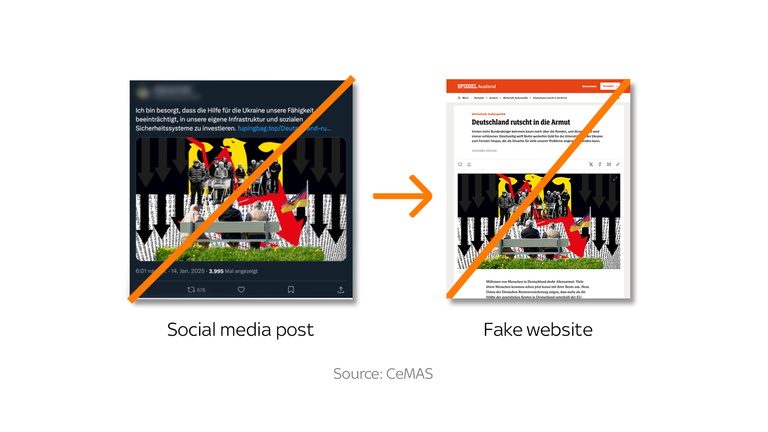Baidu Launches ERNIE Bot: Revolutionizing Generative AI for Everyone
Baidu Unveils Public Access to ERNIE Bot Generative AI
Chinese technology powerhouse Baidu has announced that its generative AI solution, ERNIE Bot, is now accessible to the public via various app stores and its official website. This advanced AI can produce text, images, and videos in response to natural language prompts, powered by the ERNIE (Enhanced Representation through Knowledge Integration) deep learning model.
The ERNIE initiative began in 2019 when researchers from Tsinghua University introduced its first version, showcasing its capabilities in understanding natural language by merging text data with knowledge graphs. Later that year, Baidu launched ERNIE 2.0, achieving a groundbreaking score exceeding 90 on the GLUE benchmark for evaluating natural language systems.
In 2021, a research paper on ERNIE 3.0 claimed the model surpassed human performance on the SuperGLUE benchmark, setting a new record and outperforming efforts from major tech companies like Google and Microsoft. Baidu’s CEO, Robin Li, noted that making ERNIE Bot publicly available would provide valuable human feedback to refine user interactions, emphasizing the four fundamental abilities of generative AI: understanding, generation, reasoning, and memory.
Initially presented in March, ERNIE Bot demonstrated its versatility across multiple domains, including literature, art, and scientific inquiries. For instance, it can summarize a sci-fi novel or suggest plot extensions within an expanded universe. It is also capable of creating visual content, such as generating a portrait of a fictional character or a scene from a film based on textual descriptions.
Baidu reported a threefold increase in ERNIE Bot’s training throughput since March, achieving new benchmarks in data analysis and visualization. The bot can now generate responses more swiftly and process image inputs. For example, it can analyze a pie chart and articulate a summary of the data in natural language.
As one of the first Chinese corporations to gain regulatory approval to offer generative AI to the public, Baidu is moving forward amidst a landscape where the Chinese government views AI as a critical business and political factor. Authorities are focused on ensuring the responsible and ethical implementation of this technology while enabling local companies to remain competitive globally.
Regulatory Framework for Generative AI in China
In July 2023, the Chinese government introduced new regulations governing generative AI, establishing a framework that exceeds current global standards to encourage responsible use. These regulations address critical areas, including content, data, technology, fairness, and licensing.
Among the key stipulations, operators of generative AI systems must align with the core socialist values and refrain from disseminating content that could undermine state power, promote secession or terrorism, or disrupt national unity and social stability. Services must avoid promoting ethnic hatred, violence, obscenity, or misleading information.
Moreover, the regulations indicate China’s commitment to nurturing digital public goods for generative AI. The guidelines highlight the importance of establishing public training data platforms and encouraging collaboration in sharing model-making resources to optimize usage rates. Additionally, there is a push for the systematic classification of public data and the enhancement of high-quality public training datasets.
Lastly, the rules stipulate that AI systems should be developed with security and reliability in mind, signaling a robust commitment to ethical AI practices and technological advancements within the country.
When developing AI models, various resources such as chips, software, computing power, and data must be utilized efficiently. A significant concern is the respect for intellectual property rights, which requires obtaining consent from individuals before using personal data. Additionally, there is a growing emphasis on enhancing the quality, authenticity, accuracy, objectivity, and diversity of the training data.
To promote fairness and avoid discrimination, developers must create algorithms that do not favor or disadvantage individuals based on characteristics such as ethnicity, belief, nationality, gender, age, job, or health status. Furthermore, operators of generative AI are generally required to acquire licenses for their services, which adds a layer of regulatory oversight. The regulations established in China not only impact domestic AI operators but also provide a framework for global discussions on AI governance and ethical standards.
In other developments, the AI landscape is rapidly evolving, with events such as the AI & Big Data Expo taking place in Amsterdam, California, and London. This event gathers industry leaders to explore the latest trends and innovations in AI and big data technology.
Artificial Intelligence, Machine Learning, Space
The significance of machine learning in advancing the security of cloud-native containers.
Artificial Intelligence, Finance, Logistics
Innovative applications of machine learning that are transforming business processes.
Applications, Artificial Intelligence, Face Recognition, Industries, Security
Allegations surrounding the use of AI and bots to artificially inflate music stream counts.
Artificial Intelligence, Space, Sponsored Content
The advantages of collaborating with outsourced development teams.
See All Updates
Applications, Artificial Intelligence, Chatbots, Companies, Development, Virtual Assistants
Magistral: Mistral AI Challenges Big Tech with Reasoning Model
Artificial Intelligence offers exciting possibilities, with innovations constantly emerging. A significant player in this space, Mistral AI, has introduced a reasoning model that poses a challenge to major tech firms.
The AI Blockchain: What Is It Really?
This emerging technology explores the intersection of artificial intelligence and blockchain, raising questions about its true potential and applications in various sectors.
Apple Opens Core AI Model to Developers Amid Measured WWDC Strategy
Apple is taking a significant step by making its central AI model available to developers. This move reflects a cautious approach during their WWDC event, aiming to foster innovation while maintaining a strategic direction in the tech landscape.
AI News is part of TechForge, delivering timely updates and insights into the latest developments within the technology sector.
Countries and Regions:
Here is a comprehensive list of countries and regions categorized as islands or territories around the world:
- Fiji
- Finland
- France
- French Guiana
- French Polynesia
- French Southern Territories
- Gabon
- Gambia
- Georgia
- Germany
- Ghana
- Gibraltar
- Greece
- Greenland
- Grenada
- Guadeloupe
- Guam
- Guatemala
- Guernsey
- Guinea
- Guinea-Bissau
- Guyana
- Haiti
- Heard Island and McDonald Islands
- Holy See
- Honduras
- Hong Kong
- Hungary
- Iceland
- India
- Indonesia
- Iran
- Iraq
- Ireland
- Isle of Man
- Israel
- Italy
- Jamaica
- Japan
- Jersey
- Jordan
- Kazakhstan
- Kenya
- Kiribati
- Korea, Democratic People’s Republic of
- Korea, Republic of
- Kuwait
- Kyrgyzstan
- Lao People’s Democratic Republic
- Latvia
- Lebanon
- Lesotho
- Liberia
- Libya
- Liechtenstein
- Lithuania
- Luxembourg
- Macao
- Madagascar
- Malawi
- Malaysia
- Maldives
- Mali
- Malta
- Marshall Islands
- Martinique
- Mauritania
- Mauritius
- Mayotte
- Mexico
- Micronesia
- Moldova
- Monaco
- Mongolia
- Montenegro
- Montserrat
- Morocco
- Mozambique
- Myanmar
- Nambia
- Nauru
- Nepal
- Netherlands
- New Caledonia
- New Zealand
- Nicaragua
- Niger
- Nigeria
- Niue
- Norfolk Island
- North Macedonia
- Northern Mariana Islands
- Norway
- Oman
- Pakistan
- Palau
- Palestine, State of
- Panama
- Papua New Guinea
- Paraguay
- Peru
- Philippines
- Pitcairn
- Poland
- Portugal
- Puerto Rico
- Qatar
- Romania
- Russian Federation
- Rwanda
- Réunion
- Saint Barthélemy
- Saint Helena, Ascension and Tristan da Cunha
- Saint Kitts and Nevis
- Saint Lucia
- Saint Martin
- Saint Pierre and Miquelon
- Saint Vincent and the Grenadines
- Samoa
- San Marino
- Sao Tome and Principe
- Saudi Arabia
- Senegal
- Serbia
- Seychelles
- Sierra Leone
- Singapore
- Sint Maarten
- Slovakia
- Slovenia
- Solomon Islands
- Somalia
- South Africa
- South Georgia and the South Sandwich Islands
- South Sudan
- Spain
- Sri Lanka
- Sudan
- Suriname
- Svalbard and Jan Mayen
- Sweden
- Switzerland
- Syria, Arab Republic
- Taiwan
- Tajikistan
- Tanzania, the United Republic of
- Thailand
- Timor-Leste
- Togo
- Tokelau
- Tonga
- Trinidad and Tobago
- Tunisia
- Turkmenistan
- Turks and Caicos Islands
- Tuvalu
- Türkiye
- US Minor Outlying Islands
- Uganda
- Ukraine
- United Arab Emirates
- United Kingdom
- United States
- Uruguay
- Uzbekistan
- Vanuatu
- Venezuela
- Viet Nam
- Virgin Islands, British
- Virgin Islands, U.S.
- Wallis and Futuna
- Western Sahara
- Yemen
- Zambia
- Zimbabwe
- Åland Islands





